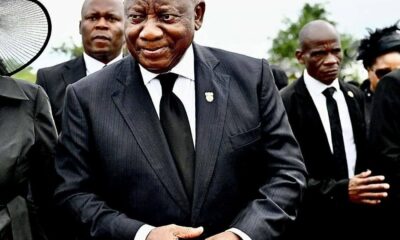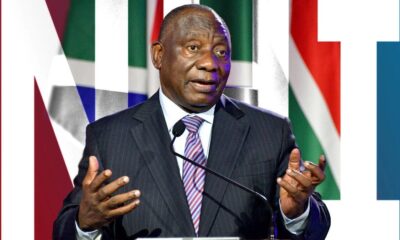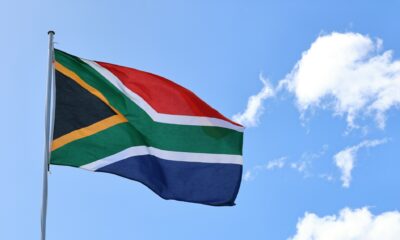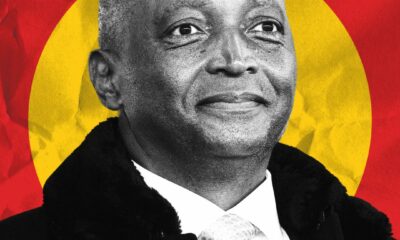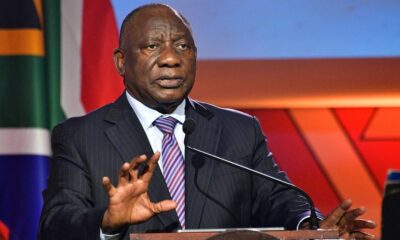News
Trump’s Empty Seat at the G20 Becomes South Africa’s Chance to Shape the Global Agenda

A moment the world did not expect
When the G20 arrives in Johannesburg for its first-ever summit on African soil, the global spotlight will fall on Soweto. Delegates will gather, cameras will flash, and world leaders will argue, negotiate, and pose for photographs. Yet one seat will stand out. The chair meant for the President of the United States will remain empty.
Washington has confirmed that it will not attend the summit. The official reasoning is that South Africa, once ruled under apartheid, now allegedly mistreats white people. The United States has also rejected South Africa’s chosen agenda for the conference. That agenda focuses on climate resilience, debt relief for low-income nations, clean energy transitions, and fairer mineral partnerships.
For a meeting designed to showcase Africa’s future potential, the symbolism of a missing superpower is impossible to ignore.
Ramaphosa’s unusual handover
At the end of the summit, President Cyril Ramaphosa is expected to hand the G20 chair to its next host. That host is Donald Trump. The complication is that Trump himself will not be present.
Ramaphosa has already joked that he will still perform the symbolic handover, speaking to the empty chair before addressing Trump directly afterwards. The moment will unfold in Soweto, a place deeply rooted in South Africa’s history of resistance and exclusion. For many locals, the surreal image of Ramaphosa facing an unoccupied seat is already stirring commentary and satire online.
An empty chair becomes a stage
While some see Trump’s absence as an embarrassment, others view it as an opening. Analysts from Chatham House argue that without the United States dominating the conversation, other players can step forward. European countries and China may use the moment to fill the leadership gap. They are expected to push cooperation on debt, energy transition, and disaster readiness, all issues affecting the global south.
Several leaders are also skipping the summit for their own reasons. Argentina’s President Javier Milei is staying away because of ideological opposition, while Russia’s Vladimir Putin remains absent due to the International Criminal Court warrant. China is sending Premier Li Qiang instead of President Xi Jinping. The shifting guest list creates a rare moment where individual countries can assert themselves without being overshadowed by Washington or Moscow.
Political observers believe this could benefit the hosts. One South African academic noted that a disruptive appearance by the United States might have derailed the summit. In his view, Trump staying away may actually give the G20 a better chance to focus on substance.
Africa’s agenda steps into the foreground
South Africa wants this G20 to be remembered for more than its historic location. Its agenda is packed with issues central to the continent. Leaders will explore how to manage climate-driven disasters, secure sustainable debt solutions, and ensure that the rush for critical minerals benefits African producers instead of only foreign buyers.
Good Governance Africa has highlighted that 600 million Africans still lack electricity. For them, the promise of a cleaner and more accessible energy future is not theoretical. It is a matter of daily survival. The summit also brings an African Union delegation representing the continent as a collective voice, a step many see as long overdue.
There are also whispers of bilateral deals and new partnerships forming on the sidelines. Some African and European leaders plan to push trade cooperation and investment programmes during their private sessions. France has confirmed that President Emmanuel Macron will launch a Franco-South African business council and commemorate historical ties related to the anti-apartheid struggle.
Multilateralism under strain
Not everything will be smooth. Even before this summit, G20 meetings were struggling to produce meaningful commitments. Climate agreements have grown weaker as countries clash on who should carry the burden of reducing emissions. Trump has already signalled that the United States would veto any attempt to emphasise climate change in the final declaration.
South African commentators warn that the summit’s ambition to revive global cooperation faces a difficult road. Some believe that multilateralism has lost momentum, overwhelmed by rising nationalism and geopolitical rivalry.
A turning point for South Africa
Still, the empty chair may become the most powerful symbol of the entire summit. Rather than weakening the event, it invites South Africa to fill the silence with leadership. It allows African nations to present their priorities without waiting for approval from traditional power brokers. It shifts the global stage and asks the world to listen.
As the cameras roll in Soweto, the world will watch to see how South Africa uses this rare moment. In a summit shaped by absences, the hosts may finally have the chance to define their presence.
Follow Joburg ETC on Facebook, Twitter, TikT
For more News in Johannesburg, visit joburgetc.com
Source: Bizcommunity
Featured Image: Reuters



